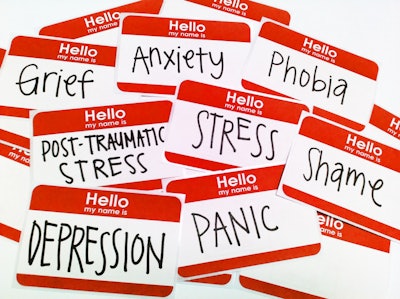Stanford University announced that, in most cases, it will now rely on the Palo Alto Fire Department instead of campus police to transport students put in psychiatric holds to the emergency room.
“We are deeply appreciative of our collaborative working relationship, and we are grateful to partner with you on discussing different options for transporting students who are experiencing a mental health crisis from campus to a hospital,” wrote Dr. Susie Brubaker-Cole, vice provost for student affairs at Stanford, and Dr. Bina Pulkit Patel, director of counseling and psychological services at Stanford, in an Oct. 13 message to Associated Students of Stanford University (ASSU). “We also want to express our gratitude to the many students in and outside of the ASSU who have been committed to raising this issue and addressing this challenge.”

The decision comes amidst a national conversation about police practices after Black Lives Matter protests this summer, including a reexamination of what part police should play, if any, in responding to mental health crises. Campus police departments – and their place in campus mental health care – are undergoing similar scrutiny.
“In many ways, a college campus is a microcosm of the greater community,” said Laura Horne, chief program officer at Active Minds, a nonprofit focused on student mental health. “That’s why we’re seeing renewed interest in really defining the role of police and really figuring out where they can be helpful.”
From her perspective, university leaders need to think about how to make sure campus police participate in mental health interventions only “when necessary, in a limited manner and ideally with the student’s consent.”
Over the past two years, there have been several incidents where interactions between police and students of color experiencing mental health issues have allegedly resulted in use of force. In 2018, a Cambridge police officer allegedly punched Selorm Ohene, a Black student allegedly found naked and acting erratically. According to the Harvard Black Law Students Association, university health services was called but transferred the call to police. Last year, a viral video showed Black student Gianna Wheeler forcibly removed from her apartment by six American University police officers after a mental wellness check, Black Lives Matter DC reported.
Research shows that students who struggle with mental health are more likely to become victims of violence rather than perpetrators of violence, Horne said. “Mental health is not primarily a conduct or safety issue. It’s primarily a health issue. And when someone is experiencing a physical health concern, our first instinct is not to call the police. We call a doctor. If you’re struggling with your physical health, I can’t even think of the circumstances under which the police might be involved.”
A visible police presence can escalate a mental health episode, especially for students of color, noted Dr. David Rivera, associate professor of counselor education at Queens College and a national advisor for the Steve Fund, a nonprofit that advocates for mental health resources for underrepresented students.
 Dr. David Rivera
Dr. David Rivera“We know in Black and Latinx communities it’s quite common that they’re overly policed, overly criminalized and overly killed by police officers,” he said. Students from those communities are “probably going to have within their worldview a distrust for the police, and if that’s a part of their worldview and a police officer is now called to attend to a mental health crisis that they’re experiencing, that can trigger that previous trauma of police brutality or police victimization of people of color.”
“That’s the last thing we want to do as a clinician is to put our clients, especially when they’re in their neediest moments, under more duress or pressure or stress,” he added.
That said, in Rivera’s own experience, student counseling centers sometimes need to make a 911 call for students’ safety. But like Stanford, he’s seen universities think creatively about how and when campus police get involved. There are schools that require police be called for mental health emergencies, but a counselor travels with the student to the hospital.
At some colleges with on-campus hospitals, a mental health professional can transport the student without campus security, unless there’s a safety concern for the counselor or student. Rivera has also seen schools appoint a safety wellness liaison, who has police training but responds to calls in plain clothes.
“Optics make a big difference,” he said, and university policies should take that into account.
For Rivera, the most important thing is that whoever responds to a mental health crisis call has extensive training in mental health and de-escalation techniques so they can interpret the situation accurately and with the student’s safety as their number one goal.
Horne also emphasized that campus police need rigorous mental health training, not only to handle mental health emergencies but as a re-envisioning of their role. She wants to see a “campus-wide approach” to mental health that focuses less on responding to crises and more on providing immersive mental health care that could help stop a crisis from happening in the first place. Campus police, like the rest of the campus community, can be a part of a broader public health response.
“With the primary mission of campus police being to ensure public safety, I think there’s a case to be made that students would really benefit [from] seeing that mission broaden to not only include physical safety for the community at large but also providing psychological safety for the individual members of the community in their interactions with the police,” she said. Universities need to pose the question to students: “How can [the] presence of police on campus support both your physical safety and your psychological safety so you can be your best self, do your best work and feel safe in all senses of the word while you’re on campus?”
Sara Weissman can be reached at [email protected].





















